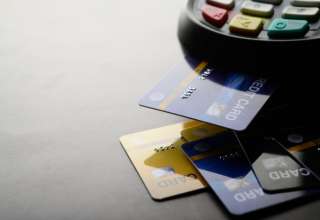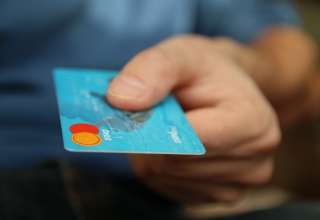It’s easy to forget how much of an impact your favorite plastic card can have on your lifelong financial health. If you use it properly, your credit card can help you avoid damaging debt and can help protect and improve your credit score. However, if you use it carelessly, you can damage your finances and credit score.
While this article isn’t an exhaustive list, it does include seven credit card pitfalls that you must avoid so that you can set yourself up for credit success for the foreseeable future and years to come.
1. Only Paying the Minimum Payments
It may be enticing to only pay the specified minimum payments on your credit cards, especially if you’re in a financial pinch. If you’re only able to make the minimum payments due to your budget, try to keep your balance as low as possible. If you carry a high balance on your cards, it will take significantly longer to pay off your credit card(s) and you’ll end up paying a lot of money back in interest. Increasing your monthly credit card payments will help you get out of debt faster and improve your credit health. If you have a high revolving balance and the minimum payments are too high, it might be worth your while to look into applying for a balance transfer credit card with 0% introductory APR. This will help you pay off your balances without breaking your bank. Alternatively, if you are thinking about getting a credit card to pay for a big-ticket item and can only afford to pay the minimum repayment (which you shouldn’t) then you should at least consider getting an interest free credit card.
2. Not Making Payments on Time
On-time payments factor into your overall credit score. Moreover, failing to pay on time will only result in your credit card company charging late payment fees, which can add up quickly. This is why it’s so important that you make every effort to remember your due dates. Try marking it on your desk or phone calendar or setting an alarm on your phone. Some credit cards offer the option to issue you a late payment warning to help you avoid missing your due date. If all else fails, sign up for automatic payments of the minimum balance so that you are paying the bare minimum that’s due, even if you forget about the payment date. Forgetting to make payments for an extended period of time can spell bad news for your credit and financial health, so it’s imperative that you remember to pay your bills on time.
3. Sharing Your Credit Card
This should go without saying, but all too often people loan out their credit cards to family members or loved ones. While it’s done in good intentions, you’re seriously putting your financial and credit health at risk. You have zero control over the purchases that someone may make using your card. And, while they may say they’ll pay you back, at the end of the day, you’re responsible for your credit card bill—not them. Unless you’re prepared to pay off the balance they rack up on your card, don’t ever loan out your credit card, even to a family member.
4. Not Reviewing Your Billing Statement
Your credit card statement is more than just a bill. It contains important information about your credit card account, including balance, interest payments, due dates and minimum payments due. Additionally, the vast majority of billing statements include itemized transactions. In the age of cybercrime, it’s important to review your transactions with a fine-tooth comb to ensure that you’re only be charged for purchases you made. If you ignore your billing statement and blindly make payments, you’ll never know if your credit card was compromised. Moreover, your billing statement typically includes any important changes that may be happening to your account. If you fail to read these statements, you’ll miss this important information.
5. Maxing Out Your Card
It can be tempting to fill up your credit card, and it can be very easy to do so. However, charging your credit card balance over 30% and failing to pay it off is very dangerous for your credit card health. You’ll be at risk of paying over-the-limit fees, having your card declined and being charged penalty rates for exceeding your limit. Moreover, if you max out your card it’s difficult to pay down your balance, especially if you’re on a budget. Avoid racking up a large balance if you’re not able to pay it off regularly to preserve your financial and credit card health.
6. Obtaining Charged-off Status on Your Card
If you miss six months of payments on your credit cards, your account will receive a charge-off status. This status is extremely detrimental to your credit report and score. It will remain on your report for up to seven years, significantly impacting your credit health and impeding your ability to be approved for large purchases, loans or new credit cards. If you have a delinquent account, you must do everything in your power to get out of it before you lose control.
7. Applying for Multiple Credit Cards at Once
When you apply for a credit card, you receive a hard inquiry on your credit report, regardless of whether or not you’re approved for the card. Obtaining multiple hard inquiries in a short period of time is detrimental to your overall credit health. In some cases, having multiple inquiries can lead to higher denial rates as lenders can see you’ve been applying for credit regularly. Only apply for credit cards on an as-needed or one-off basis, even if you get denied. While it can be frustrating to receive denials, the answer lies in focusing on improving your credit and not focusing on getting more credit cards.
Summary
Your usage of your credit card can either build you up or tear you down over the years. It’s important to avoid the common pitfalls outlined above to keep your credit cards and score in the green for years to come.













